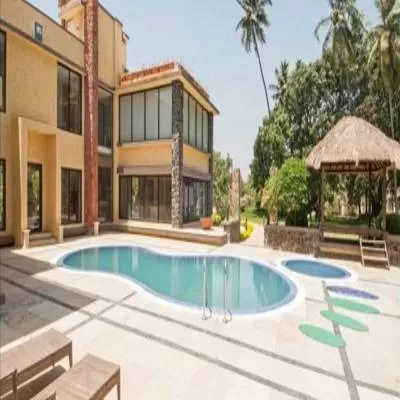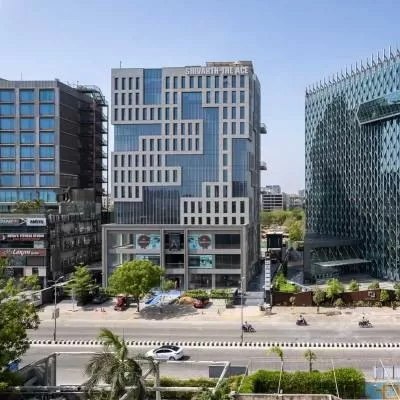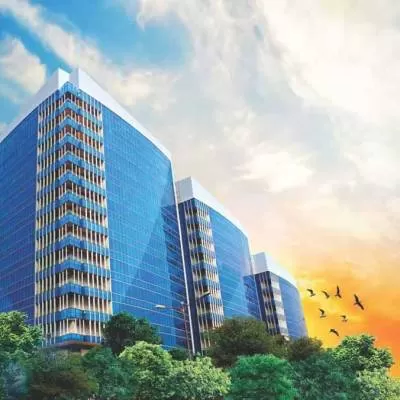- Home
- Real Estate
- Capital gains on Joint Development Agreement to be taxed only when the project is completed would provide a boost to unlocking land for development

Capital gains on Joint Development Agreement to be taxed only when the project is completed would provide a boost to unlocking land for development
Ajay Jain, Executive Director-Investment Banking & Head Real Estate Group, Centrum Capital, on the Union Budget 2017-18:
The real estate sector which was hit by the Modi Government’s demonetisation drive was betting high on the Union Budget 2017. A slew of measures have been proposed, which aim at providing the much needed boost to the real estate sector. Some of the key highlights pertaining to the real estate sector announced in the Budget are as follows:
- The affordable housing sector has been granted the infrastructure status, which has been a long time demand from the industry. This is in line with the Prime Minister 's vision of providing Housing for All by 2020. Giving an infrastructure tag to such projects would attract more investors. It would mean developers would have access to cheaper funding and thus addresses issues that private players in this segment face. However, the government would need to define affordable housing or low-cost housing clearly.
- National Housing Bank will refinance individual loans worth Rs 20,000 crore in 2017-18. This will give a major push to affordable housing companies.
- The government has also proposed one year tax exemption from notional rental income from unsold inventory. This would help especially those holding real estate inventory or stock. This is a great move to providing tax relief to developers in the residential sector where the sales have significantly dropped post demonetisation move.
- Capital gains on Joint Development Agreement is to be taxed only when the project is completed. This would provide a great boost to unlocking land for development and reduce litigation.
- In case of long term capital gains from immovable properties, the holding period has been reduced from three years to two years to qualify for benefits of long term capital gains providing respite to investors.
- The base year for calculation of Indextation for long term capital gain shifted from 1981 to 2001. As a result of this, resultant gain would reduce, and in turn, lower taxation.
- The government has allocated Rs 23,000 crore for the PMAY to propose to complete one crore houses by 2019 for those living in kachha houses.
- In the last budget, the government provided 100 per cent tax exemption on profits, for developers building homes with built-up area up to 30 sq m in the four metros and up to 60 sq m in other cities. The government stated that instead of built-up area, carpet area would be applicable
- Rate of interest on housing loan to further come down.
Some of the other key highlights of the Budget are as follows:
- Small and medium entities with annual turnover up to Rs 50 crore are set to attract a corporate tax liability of 25 per cent now, instead of 30 per cent.
- For individuals, the income tax rate is reduced from 10 per cent to 5 per cent for tax slab between Rs 250,000 to Rs 500,000, which means any person whose income is up to Rs 5 lakh, the tax liability will be halved. Any person whose income is above Rs 5 lakh would have a net tax saving of Rs 12,500.
- For individuals, whose income is between Rs 50 lakh to 1 crore per financial year, a surcharge of 10 per cent shall be additionally charged. The 15 per cent surcharge on incomes above Rs 1 crore will continue.
- It stated that MAT cannot be abolished at present. However, there is a proposal to allow a carry forward of Minimum Alternative Tax for a period of 15 years up from the current 10 years now.
- It recommended a total ban on cash transactions of Rs 3 lakh and above.
- The basic customs duty on LNG proposed to reduced from 5 per cent to 2.5 per cent.
- Current account deficit declined to 3.2 per cent of GDP.
- Fiscal deficit for 2017-18 pegged at 3.2 per cent of GDP. Fiscal deficit target for next three years is pegged at 3 per cent. Revenue deficit for FY18 is pegged at 1.9 per cent
- IMF estimates world GDP will grow by 3.4 per cent in 2017.
- Foreign investment promotion board (FIPB) to be abolished.
- Stating that political parties continue to receive most funds through anonymous donation, maximum cash donation any party can receive will be capped at Rs 2,000 from one source.
- Ajay Jain, Executive Director-Investment Banking & Head Real Estate Group, Centrum Capital Ajay Jain, Executive Director-Investment Banking & Head Real Estate Group, Centrum Capital, on the Union Budget 2017-18: The real estate sector which was hit by the Modi Government’s demonetisation drive was betting high on the Union Budget 2017. A slew of measures have been proposed, which aim at providing the much needed boost to the real estate sector. Some of the key highlights pertaining to the real estate sector announced in the Budget are as follows: The affordable housing sector has been granted the infrastructure status, which has been a long time demand from the industry. This is in line with the Prime Minister 's vision of providing Housing for All by 2020. Giving an infrastructure tag to such projects would attract more investors. It would mean developers would have access to cheaper funding and thus addresses issues that private players in this segment face. However, the government would need to define affordable housing or low-cost housing clearly. National Housing Bank will refinance individual loans worth Rs 20,000 crore in 2017-18. This will give a major push to affordable housing companies. The government has also proposed one year tax exemption from notional rental income from unsold inventory. This would help especially those holding real estate inventory or stock. This is a great move to providing tax relief to developers in the residential sector where the sales have significantly dropped post demonetisation move. Capital gains on Joint Development Agreement is to be taxed only when the project is completed. This would provide a great boost to unlocking land for development and reduce litigation. In case of long term capital gains from immovable properties, the holding period has been reduced from three years to two years to qualify for benefits of long term capital gains providing respite to investors. The base year for calculation of Indextation for long term capital gain shifted from 1981 to 2001. As a result of this, resultant gain would reduce, and in turn, lower taxation. The government has allocated Rs 23,000 crore for the PMAY to propose to complete one crore houses by 2019 for those living in kachha houses. In the last budget, the government provided 100 per cent tax exemption on profits, for developers building homes with built-up area up to 30 sq m in the four metros and up to 60 sq m in other cities. The government stated that instead of built-up area, carpet area would be applicable Rate of interest on housing loan to further come down. Some of the other key highlights of the Budget are as follows: Small and medium entities with annual turnover up to Rs 50 crore are set to attract a corporate tax liability of 25 per cent now, instead of 30 per cent. For individuals, the income tax rate is reduced from 10 per cent to 5 per cent for tax slab between Rs 250,000 to Rs 500,000, which means any person whose income is up to Rs 5 lakh, the tax liability will be halved. Any person whose income is above Rs 5 lakh would have a net tax saving of Rs 12,500. For individuals, whose income is between Rs 50 lakh to 1 crore per financial year, a surcharge of 10 per cent shall be additionally charged. The 15 per cent surcharge on incomes above Rs 1 crore will continue. It stated that MAT cannot be abolished at present. However, there is a proposal to allow a carry forward of Minimum Alternative Tax for a period of 15 years up from the current 10 years now. It recommended a total ban on cash transactions of Rs 3 lakh and above. The basic customs duty on LNG proposed to reduced from 5 per cent to 2.5 per cent. Current account deficit declined to 3.2 per cent of GDP. Fiscal deficit for 2017-18 pegged at 3.2 per cent of GDP. Fiscal deficit target for next three years is pegged at 3 per cent. Revenue deficit for FY18 is pegged at 1.9 per cent IMF estimates world GDP will grow by 3.4 per cent in 2017. Foreign investment promotion board (FIPB) to be abolished. Stating that political parties continue to receive most funds through anonymous donation, maximum cash donation any party can receive will be capped at Rs 2,000 from one source.























